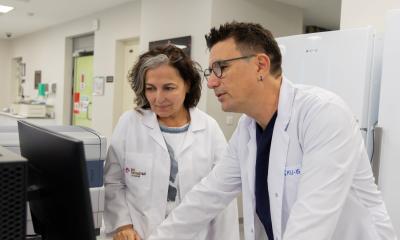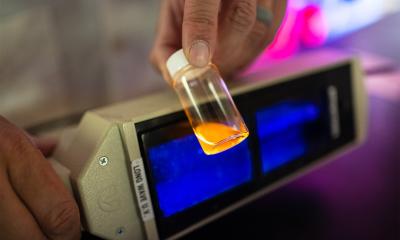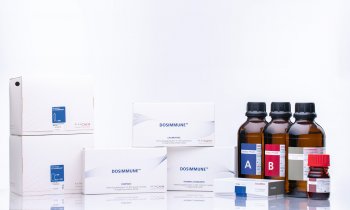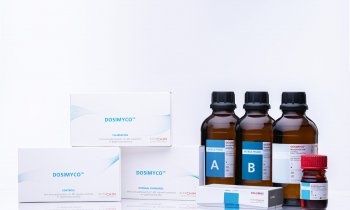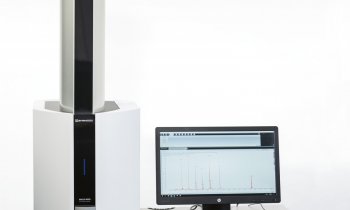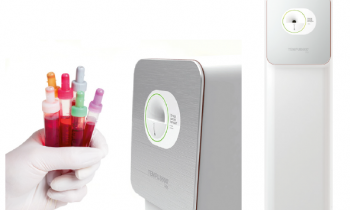Article • To the core
Mass spec needs experienced operators
As mass spectrometry proves to be a more consistent and accurate tool in biochemical measures, with acknowledged advantages over immunoassays, its role in diagnostics has escalated.
Report: Mark Nicholls

Headed by Professor Ruth Andrew, the pioneering Mass Spectrometry Core Facility at the University of Edinburgh, aims to offer researchers access to expert scientists and specialist resources to support clinical research.
With high-cost state-of-the-art equipment hosted through a Core lab, the costs of installation, maintenance and on-going support can be shared. The facility is staffed by mass spectrometry specialist scientists who can advise researchers on the correct way to address their scientific questions at all stages of the project. They also assess the potential of innovations that could benefit clinical research and find ways to resource and incorporate new technologies.
MS instruments have improved in their sensitivity and robustness, making them more attractive and approachable to clinical labs
Ruth Andrew
Mass spectrometry is already playing a greater role in diagnostics. ‘Over the last decade,’ Andrew pointed out, ‘MS has become more extensively utilised in clinical biochemistry, primarily because it is recognised that other biochemical measures – such as immunoassay – have inherent errors and can be variable between manufacturers. This causes offsets between data generated by different hospitals. ‘MS overcomes the non-specificity of antibodies used in immunoassays, generating more accurate results that can be standardised nationally. MS instruments have improved in their sensitivity and robustness, making them more attractive and approachable to clinical labs. Investment in warranty contracts will enable a lab to operate with less downtime, but are costly.’
In the UK, analysis of testosterone and Vitamin D are now routinely conducted by MS, while the US Endocrine Society has recommended that MS should become used across hospital labs for steroids assays. There are various quality control schemes in the USA, EU and UK to align data between labs with samples being sent to multiple centres and compared.
The data is hard to handle in a standardised manner. However, this could pave the way for personalised medicine
Ruth Andrew
However, MS is still generally only available in regional hospitals and sites of specialist expertise, such as for use in paediatric labs to diagnose inborn errors. ‘MS is complementary to other techniques but, due to the expertise required, it cannot be easily managed by non-specialist scientists and normally does not have as high a throughput as other analytical approaches,’ Andrew added. ‘However, this may be offset by the fact that multiple components can be measured in one run. ‘With time, sample preparation has become more automated and throughput is increasing. Some of the instrument companies have invested in kits and software to make the system more user-friendly, such that less experienced operators can use the system. However, the systems still need to be embedded in labs with expert staff to ensure efficient running, method development and to troubleshoot problems.’
While MS is more precise, albeit more complicated, there are clear advantages, particularly with specificity, which allows greater reproducibility and reliability of data. ‘For hormone analysis, for example, this means there is less likelihood that other components in the blood can artificially raise the results,’ Andrew explained. ‘In the research field, metabolomic profiling of the fingerprint of a large number of biochemical species by MS may be used to predict disease risk or drug responses, but this approach is in its infancy and the data hard to handle in a standardised manner, so some way from clinic. However, this could pave the way for personalised medicine.’
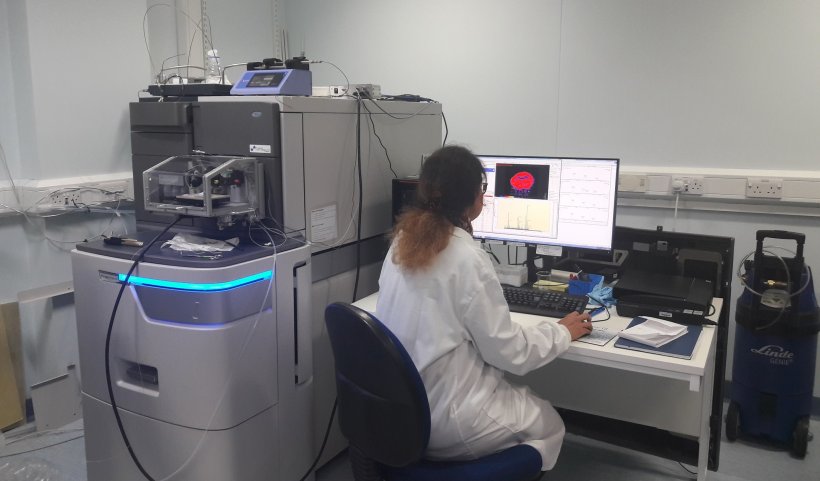
There is a promising future for MS in diagnostics, she confirmed, but also warned not to expect the same pace in advances in quantitative tandem MS/MS over the next decade as in the previous 10 years. ‘Accurate mass systems offer improved specificity but are not yet as sensitive or as accepted for quantitation (e.g. narrower linear range). However, these instruments may in time take a bigger role in the clinical lab but are not common place.’
The new technique of REIMS (Rapid Evaporative Ionisation Mass Spectrometry) to sample from surfaces is highly exciting for real-time surgical diagnostics and also for pathology. ‘REIMS may also gain a role in rapid microbiological testing,’ she said. ‘These approaches are speeding up diagnostics and I expect to see these applications extended with improvements in MS imaging. However, again, these are highly-specialised and expensive and, to my knowledge, only one manufacturer is building instruments that are specifically designed to meet the quality requirements for clinical diagnostics.’
Profile:
Professor Ruth Andrew is Personal Chair of Pharmaceutical Endocrinology Centre for Cardiovascular Science, University of Edinburgh, and Director at the Mass Spectrometry Core Facility, where her main role is to facilitate, lead and conduct biomedical research in the MS Core in all stages of clinical research projects, including preclinical development. Within the MS Core she assesses the potential of new innovations and brings new ideas forward that may then be consolidated in clinical research.
13.05.2019



